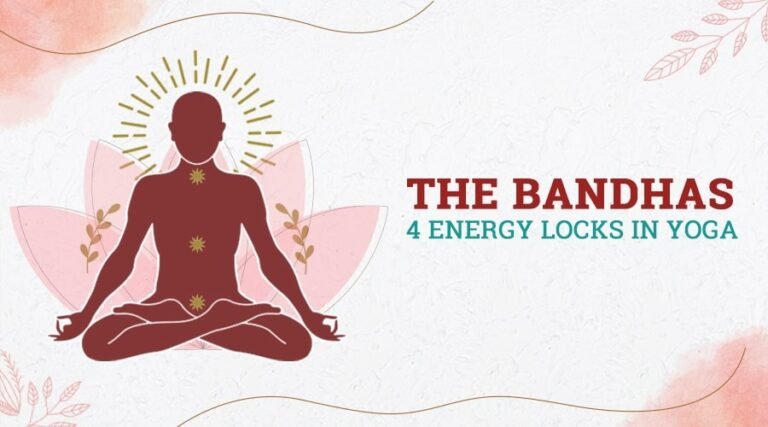Fasting and Yoga: Ancient Practices for Modern Health
Hey there, lovely souls!
Today we are so thrilled to explore a really interesting subject that combines two formidable ancient activities: fasting and yoga. You may be asking yourself how these two apparently disparate subjects are flagrant in each other, and trust us, the possibilities are really immense in terms of the extraordinary advantages they have on your current health and well-being. Therefore, have a warm cup of herbal tea, make yourself comfortable, and we are going to discuss the ways in which incorporating intermittent fasting, long fasting, and mindful movement of yoga among beginners can indeed change your life.
At Maa Shakti Yog Bali, we’ve seen how beautifully fasting and yoga complement each other in our retreats. This blend of mindful nourishment and conscious movement can transform your energy, focus and inner peace.
We all live in a busy 24/7 world that can easily involve us in endless lists of tasks to get done and always-consume. We are overloaded with information, food, and distraction. Here the wisdom of practices that are thousands of years old comes in, and we have to slow down, listen to the body, and consciously create the space to heal and revitalize. Yoga and fasting are both powerful means of attaining this, to enhance physical energy, clarity of mind, and spiritual development.
Power of Fasting: More Than Just Losing Weight.
When one mentions the word “fasting,” the first thing that comes to mind is the idea of losing some weight, and although that may be an efficient approach to keeping your healthy weight down, the rewards of it are far more than that. Fasting, and especially intermittent fasting to improve health and prolonged fasting to achieve health benefits, is a process of deliberately avoiding food during a given time. Periods of scarcity were natural habits of our forefathers, and science is now keeping pace with them, and the unbelievable benefits are justified.
Autophagy is one of the essential processes that take place. This is an amazing cell process that is commonly known as self-eating, and it is a process that involves cleaning the dead cells that are in your body and producing new and healthier cells. Imagine it is spring cleaning of your body! Fasting is a strong initiator of autophagy, which may help to prolong life, lower inflammation, and prevent numerous diseases. This is the reason why the introduction of fasting to long life is getting so popular.

Also Read: Sattvic Foods for Mental Clarity: A Practical Guide
In addition to autophagy, fasting can also:
- Enhance Insulin Sensitivity: It is essential in controlling blood sugar levels and may prove to be a game-changer to the person wanting to prevent or treat type 2 diabetes.
- Enhance Brain Performance: According to numerous reports, fasting increases the level of concentration and clarity of one’s mind. This may be because of the amplified synthesis of brain-derived neurotrophic factor (BDNF) that promotes nerve cell development.
- Less Inflammation: The cause of many contemporary illnesses is chronic inflammation. The effects of fasting have been demonstrated to be inflammatory in nature.
- Support Gut Health: It can be beneficial to give your digestive system a rest so that it can reboot and re-establish a healthier gut microbiome. This is an important element of general digestive health.
Now, you must not jump into a 72-hour fast before you realize that there are alternative ways. Another popular form of fasting is intermittent fasting (IF), which entails eating within a particular time of the day (e.g., the 16/8 method, where one does not eat for 16 hours and only eats within 8 hours). This is a sustainable choice because many people can follow it. Longer fasting, like the 24-hour fast and beyond, is more beneficial, but it should be done cautiously and preferably by instruction, particularly where you have a health problem.
Yoga: Body, Mind, and Breath.
Like fasting gives your body a restart, yoga will do the same to your whole body. Practicing yoga is far beyond the physical movements; it is a deep system aimed at achieving harmony between your body, mind, and spirit. From Hatha yoga to Vinyasa flow, all of them have their advantages, but the main concepts are similar: mindfulness, breath awareness (pranayama), and movement.
During our 200 Hour Yoga Teacher Training Course in Bali, students learn that yoga isn’t only about postures — it’s a complete system for cleansing, grounding, and awakening awareness.
When we get on our mats, we are not stretching, but we are developing awareness. We are learning how to stop and listen to the small signals of the body, to breathe more deeply and mindfully, and to stop the mind that chats all the time. Such a conscious relationship is what makes yoga as a stress relief method helpful.

Also Read: The Science of Auras and How Yoga Affects Your Energetic Field
This is the way yoga would be an additive to the advantages of fasting:
- Improves Detoxification: Yoga has numerous poses, particularly twists and inversions, which may stimulate the lymphatic system and internal organs, which is the ideal combination with the cleansing effects of fasting.
- Lessens Stress and Cortisol: Fasting, particularly when fresh, may occasionally be construed by the organism as a stressor. The meditative aspect of yoga aids in harmonizing the nervous system and lessening the amount of cortisol in the body and brings about a feeling of calmness. This plays a crucial role in wholesome wellness.
- Develops Body Awareness: You will learn to be more in touch with the needs of your body as you advance in your yoga. This increased awareness will allow you to differentiate between real hunger and emotional desires, and fasting will become more natural and more rational.
- Enhances Digestion: Certain yoga postures will help to activate your digestive organs and relieve bloating, as well as promote healthy elimination, which can help keep your gut in better shape as well.
- Energizes Your System: Although fasting may make you occasionally feel low-energy, a light morning yoga session can in fact make your body and mind more active and alert and make you feel more energetic.
Synergistic Dance: Fasting and Yoga.
Think of taking the cellular clearance of fasting and the mind consciousness movement and stress relief of yoga. The synergy is really impressive.
When in a fasted state, then your body is in an optimum position of repairing itself and increased awareness. This will help to deepen your experience of yoga and make it meditative. You may have a whole new feeling of closeness to your breath, an increase in the sense of openness in your body, and a more concentrated mind. It is common among most yogis that a yoga session on an empty stomach is more flexible and causes one to feel lighter and more energetic.
The following are some of the recommendations on incorporating these effective practices:
- Gradual with Intermittent Fasting: When it comes to newcomers to fasting, start off easy with the 12/12 method (fast 12 hours, eat 12 hours). Increase your fasting period over time as your body gets used to it.
- Select Gentle Yoga on Fasted Days: In a fast state, be mindful of your body. Alternate with less vigorous practices such as Hatha yoga, restorative yoga, or a mindful practice of Yin yoga. Do not take power-packed classes that can drain the energy out of you too fast.
- Hydrate, Hydrate, Hydrate: This is important when you are not eating or eating, in particular, during fasted windows. Consume as much water, herbal teas, and electrolytes as you can to remain hydrated.
- Listen to Your Body: That is the golden rule of the two practices. Should you get weak or sick and tired, nauseous, or dizzy doing a fast or during your yoga practice, have a drink or eat something. The body will always be talking to you; you need to hear it.
- Eat Responsibly: When it comes to eating, eat nutrient-dense and whole foods. Have a lazy bite on something with low digestibility to ensure that you do not overload your system.
- Regularity is Important: As with any habit, regularity is what produces results. It can be daily meditation and yoga or the habit of intermittent fasting, but whatever works, stick to it.
The path to whole-person wellness.
We are confident that the experience of fasting and yoga in your life can be a life-altering experience in terms of increased holistic health. It is about making deliberate time for your body to recover, your mind to be clear, and your spirit to fly. It is not perfection but progress, a mindful breath, a conscious movement, or a deliberate fast, one at a time.
We want you to examine these ancient practices with interest and kindness. Test, follow your own inner voice, and find the amazing good that comes your way. It can be said that whether you need to reduce stress, eat better, have a more clear mind, or just know yourself better, the journey of yoga and conscious living with the strength of fasting can be an effective guide.
We would be happy to know about your experiences! Have you tried fasting? What do you think yoga can do to your health? Write your ideas and contributions in the comment section, and we can further this discussion on ancient wisdom to fit our lives nowadays. Be healthy, be alert, and continue to shine on!






